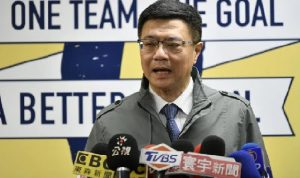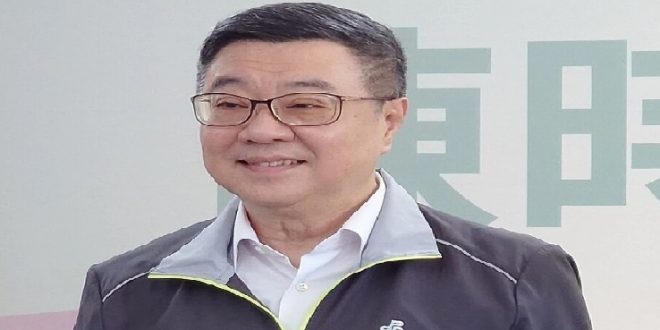11-04-2024
TAIPEI: Taiwan President-elect Lai Ching-te appointed Cho Jung-tai, a former chairman of the ruling Democratic Progressive Party (DPP), to be his premier on Wednesday, with appointments for other roles such as foreign minister due to be announced soon.
 The new premier and his cabinet will not assume their roles until Lai is inaugurated on May 20.
The new premier and his cabinet will not assume their roles until Lai is inaugurated on May 20.
Under Taiwan’s system of government, the president appoints the premier, who then appoints cabinet members with final approval from the president. It is the cabinet which enacts policy and proposes legislation.
Cho told reporters that he will announce his other cabinet members soon, adding that he will reach across party lines.
“I hope this active, innovative…cabinet, will as in the past uphold the spirit of a great democratic alliance, using people based on their talents without distinction to party affiliations and proactively training a younger generation,” he said.
Taiwan media has reported that National Security Council Secretary-General Wellington Koo, a lawyer by training, would likely take over as defence minister from Chiu Kuo-cheng, a former army commander.
Current Foreign Minister Joseph Wu will likely succeed Koo as head of the National Security Council, the media reported.
The National Security Bureau’s Director-General Tsai Ming-yen, who had previously served as Taiwan’s de facto ambassador to the European Union, will stay on as head of the intelligence agency, the reports added.
 Lai, currently vice president, won the presidential election in January but the DPP lost its majority in parliament.
Lai, currently vice president, won the presidential election in January but the DPP lost its majority in parliament.
Taiwan’s main opposition party the Kuomintang (KMT) took the most seats, but not enough to form a parliamentary majority on their own. The other seats were won by the small Taiwan People’s Party (TPP), led by former Taipei mayor Ko Wen-je.
The Taiwanese military is changing how it plans to respond to an attack by China’s rapidly growing forces, adopting more mobile equipment to fight back after a landing rather than merely focusing on repelling an invasion at sea with firepower.
Taiwan’s navy took delivery this week of two “carrier killer” corvettes, handed over by the shipbuilder 20 months ahead of schedule in a ceremony presided over by President Tsai Ing-wen, who had ordered the vessels to be built.
The ships have stealth capabilities that make them difficult for Chinese radar systems to spot and are also equipped with anti-ship and anti-air missiles. Taiwan now has six of the corvettes and aims to bring the total to 11 by 2026.
The vessels are part of a greater emphasis on small, mobile weaponry to deal more effectively with China’s overwhelming force advantage.
The 2023 edition of the National Defense Report from Taiwan’s defense ministry lays out a “defense in depth” strategy and includes an operational plan envisioning a landing by Chinese troops. The goal is to leverage defenses on the island to bog down China’s advance, buying time for U.S. support to arrive.
Taiwan will employ an “asymmetric approach,” countering the heavy weaponry of Chinese forces with smaller, more mobile equipment like the corvettes, the report says. (Int’l News Desk)
 Pressmediaofindia
Pressmediaofindia




